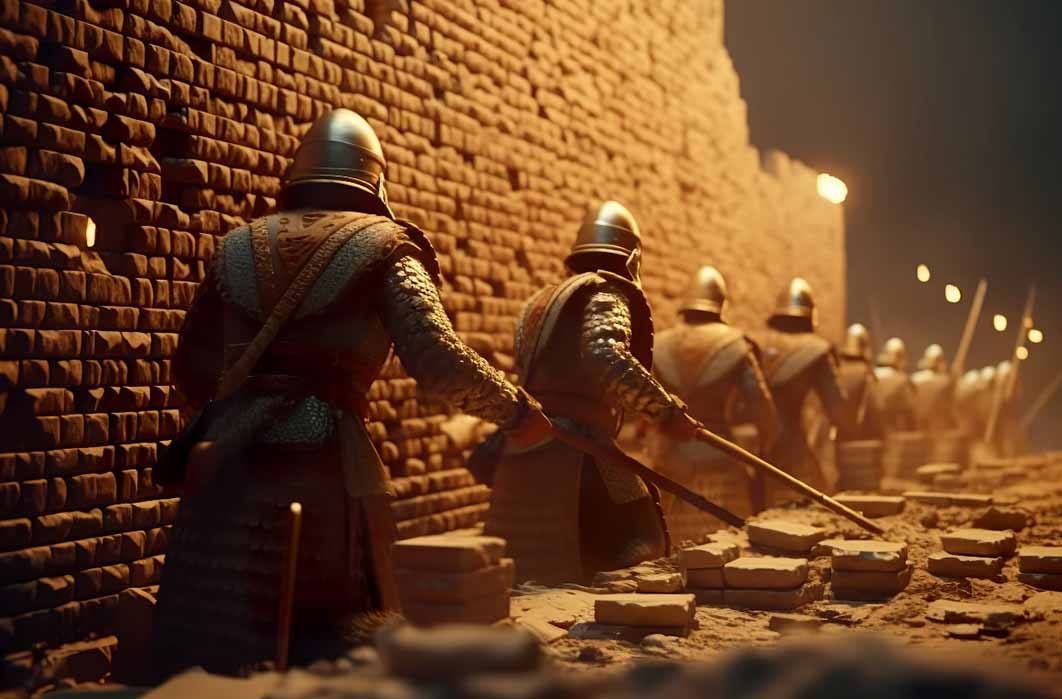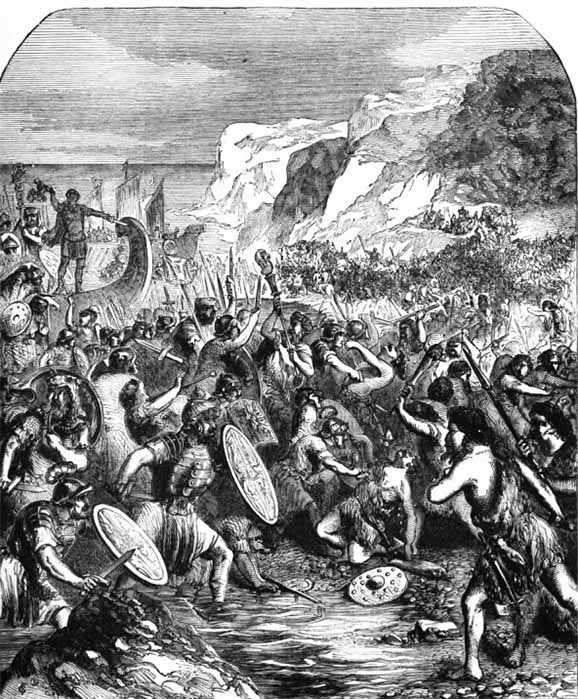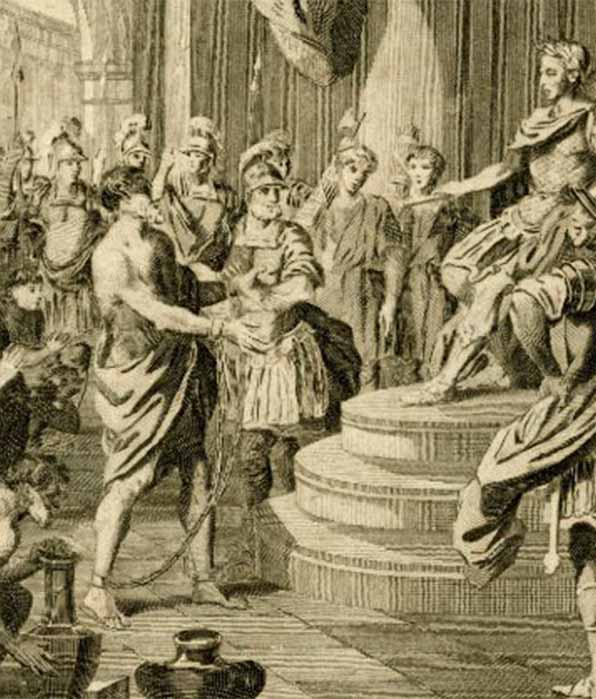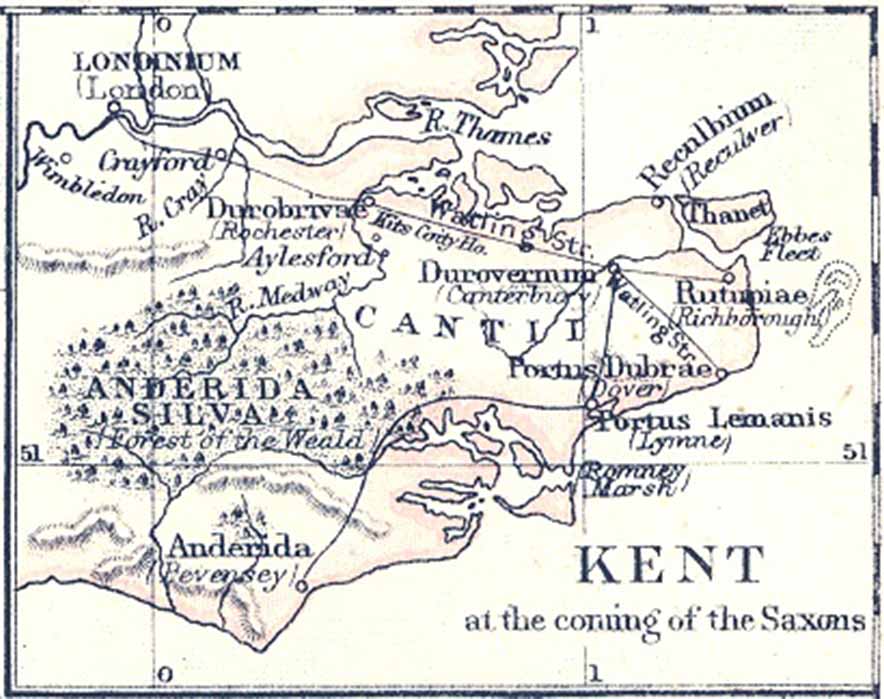
Richborough Fort, Ruins Of The Gateway To Roman Britain
Two thousand years ago the Richborough Roman Fort stood on the Isle of Thanet, off the coast of Kent, separated from the mainland by the strategically important Wantsum Channel. This area of land, rich in natural resources, had long been inhabited. During the Bronze Age people had buried a hoard there and during the Iron Age a number of settlements had sprung up in the area. Iron Age Britain was ruled by a network of Iron Age tribes, each with their own distinct lands and culture and in Kent the ruling tribe was the Cantiaci. As these tribes traded and expanded, knowledge of them grew amongst the peoples of mainland Europe, and Britannia stirred the interest of one group of people in particular: the Romans.

Landing of Julius Caesar, by John Cassell (Public Domain)
Roman intelligence on the people of Britannia, and the natural resources that the island possessed, piqued the interest of Julius Caesar while he was waging wars in Gaul, between 58 and 50 BC, to bring what today is France, Belgium, Switzerland and Luxembourg under Rome's dominion. So, in 55 and 54 BC, he ventured two expeditions into enigmatic Britannia. Neither of these were real invasions, they were more excursions, but they led to increased contact between the Empire and the tribes of Iron Age Britain. Some tribes such as the Atrebates in the south welcomed the Romans and set up a trading relationship with Rome and began to adopt Roman culture, but others like the Catuvellauni in the north-east remained hostile to their overtures. For a hundred years the Romans were content to largely let Britainnia be, but by the reign of Emperor Claudius (41-51 AD) events in Rome had dramatically increased Britainnia's political significance.

A captured Caractacus of the Catuvellauni before Emperor Claudius at Rome (18th century) (Public Domain)
Emperor Claudius’ Political Strategy
Ever since the time of Julius Caesar power in Rome had been increasingly invested in the emperor himself rather than the Senate as it had been under the Republic, and the Republic as an institution ended in 27 BC. It was now the emperor's personal responsibility, and ambition, to lead Rome to military victory and expand its empire. Emperor Claudius had never expected to become emperor, and had only been made so after the murder of his nephew Caligula. Claudius had a limp and was partially deaf but upon Caligula's murder in 41 AD he was the only male of age in the Julio-Claudian Dynasty left standing. Therefore the Praetorian Guard named him as their emperor, but his grip on power was tenuous and he badly needed a strategy to increase his power and prove himself as a military leader. Planning and engaging in military conquests provided the means to keep the army occupied with external ventures, leaving them less time to potentially plot against their emperor himself: A very real threat as many a future emperor would find out.

A general map showing late Roman Kent. The Wantsum Channel lay between the Isle of Thanet and the British mainland, in the north-eastern corner of Kent, by S. R. Gardiner (1892) (Public Domain)
Caligula had planned an invasion of Britain which had never materialized so Emperor Claudius seized upon the invasion of Britainnia to prove himself. As historian Paul Pattison writes “for Claudius a successful invasion would bring glory and popularity, it promised booty and access to the considerable natural resources of Britain….(and) to satisfy the army.”




